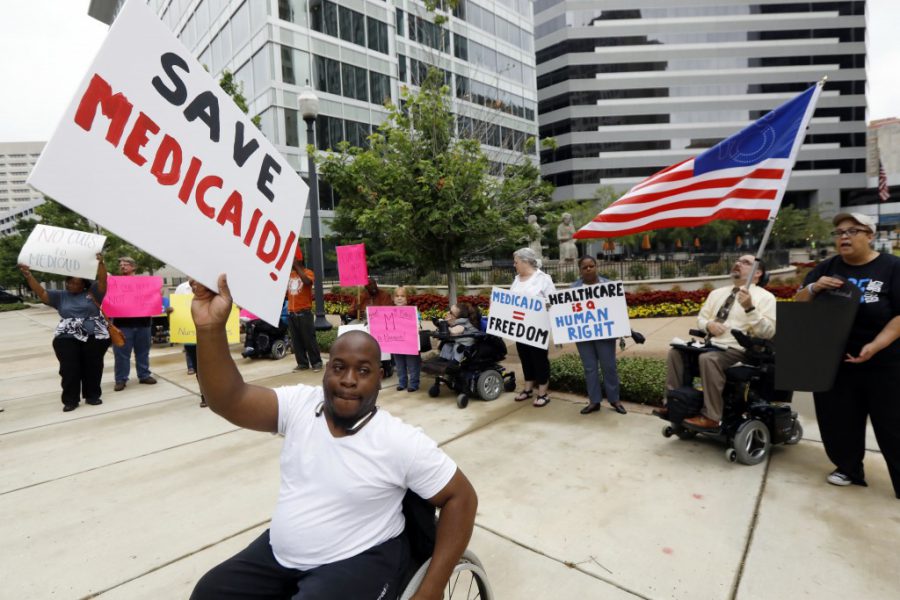Poised to take advantage
By Zachary Davis

People with disabilities and their supporters protesting proposed Medicaid spending cuts in Washington, D.C. (AP/Rogelio V. Solis)
With the midterm elections behind us, disability advocates face an opportunity to make significant legislative gains.
The conventional wisdom holds that gridlock will dominate the 116th U.S. Congress, which begins in January 2019. With a GOP majority in the Senate and a Democrat-controlled House of Representatives, both parties are poised to block each other’s most polarizing bills. But because there will likely be little movement on contentious agenda items, space will open up for other issues to come to the fore. The disability community is uniquely poised to take advantage.
Many disability-related policies were not only front and center in the midterm elections – several unified Democratic and Republican voters.
The Kaiser Family Foundation found in September that three-quarters of Americans said it is “very important that protections for pre-existing conditions remain law,” including majorities of Democrats (86 percent agreed), Independents (75 percent) and Republicans (58 percent). Public support for pre-existing conditions was so overwhelming that Republicans who previously sought to eliminate them tried obscuring or recasting their records.
Bipartisan majorities in three conservative states, Utah, Nebraska and Idaho, also voted to expand Medicaid eligibility. Typically seen as a liberal policy, Medicaid expansion far outperformed liberal candidates in all three states, which is to say, it secured a lot of conservative votes too.
Along with public sentiment, disability activists have mobilized like seldom before, and their current agenda, with its emphasis on dignity, independence and self-sufficiency, combines strong Democratic backing with fundamentally conservative principles that could win over Republicans.
Many of the disability community’s highest priorities already have bipartisan support. The Transitioning to Integrated and Meaningful Employment (TIME) Act, for example, would end the federal loophole allowing certain companies to pay employees with disabilities subminimum wage, instead channeling those individuals toward competitive jobs in the labor market. The ABLE Age Adjustment Act would allow more people with disabilities and their families to prepare for the future by saving money. The Disability Integration Act (DIA), Ensuring Medicaid Provides Opportunities for Widespread Equity, Resources and Care (EMPOWER Care) Act and Lifespan Respite Care Act all seek to offset the high costs of home- and community-based health care – which, apart from enabling people with disabilities to participate in their communities, saves the government a lot of money.
Advancing disability legislation gives politicians the chance to cooperate across the aisle and pass popular bills. It also gives people in the disability community the chance to tangibly improve their quality of life. And there will may never be a better time to pursue it than now.
Categories: accessibility, Americans with Disabilities Act, civil rights, Health and Wellness, politics, self-advocacy
Tags: ACA, health care, medicaid, medicare.

